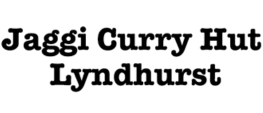
Maharaja Lakeside Indian Restaurant is a well-established dining venue located in Norwest, NSW, specialising in authentic Indian cuisine within a premium restaurant setting. Operating seven days a week, the restaurant is recognised for its traditional flavours, high-quality ingredients, and consistently high service standards.
Australia.
View details
Business & Tax Solutions Pty Ltd is a Melbourne-based accounting and taxation firm providing practical, reliable, and cost-effective financial solutions. We support individuals and businesses with accounting, tax compliance, planning, and advisory services across Australia and internationally.
Australia.
View details
Flames Burgers & Grill brings together café favourites and flame-grilled burgers under one roof. Enjoy all-day breakfast, gourmet smash burgers, indulgent shakes, and fresh juices with full table service. With three Perth locations in Balcatta, Wanneroo, and Clarkson, Flames is fully licensed, family-friendly with kids’ play areas, and offers Halal options on request—perfect for casual dining, celebrations, takeaway, and delivery.
Australia.
View details
Media Wave is a new-age IT company focused on delivering smart, scalable, and innovative technology solutions. We specialize in web development, mobile apps, digital transformation, and cloud services that help businesses grow in a fast-moving digital landscape. With a fresh perspective and a passion for tech, Media Wave empowers startups and enterprises to build their future with confidence.
Australia.
View details
Pharma Tech Inc. is a forward-thinking health and fitness company dedicated to enhancing lives through science-backed wellness solutions. We specialize in the development of cutting-edge supplements, smart fitness products, and digital health technologies. Our mission is to bridge the gap between pharmaceutical innovation and everyday wellness—empowering individuals to live stronger, healthier lives. With a focus on quality, safety, and performance, Pharma Tech Inc. is redefining the future of fitness and personal health.
Australia.
View details
Hecho en Mexico first opened in 2013 in the vibrant suburb of Fitzroy, in Victoria, quickly becoming the #1 Mexican restaurant in the area and a local favourite
Australia.
View details
Sphere Education & Training is a forward-thinking learning center dedicated to empowering individuals and organizations through quality education and skill development. We offer a range of courses, workshops, and training programs designed to enhance knowledge, boost career growth, and foster lifelong learning. With expert instructors and innovative teaching methods, Sphere helps learners unlock their full potential and succeed in a rapidly changing world.
Australia.
View details
JUDGE GROUP AUST PTY LTD, trading as R R Automotive, is looking for a skilled Motor Mechanic to support the increasing workload in our Mickleham workshop. The ideal candidate will possess strong technical skills, a keen attention to detail, and a dedication to delivering high-quality workmanship.
Australia.
View details
Web Design Studio is the art of combining graphics, animation, video, sound, and interactive elements to create engaging digital experiences. It blends creativity with technology to produce content for websites, apps, games, advertising, and more. Multimedia designers use tools like Adobe Creative Suite and 3D software to bring ideas to life across different platforms.
United States of America.
View details
Wave Media is a modern media and communications company focused on crafting compelling content and delivering impactful messaging across platforms. We specialize in digital media, public relations, content production, and strategic communications for brands, creators, and organizations. With a pulse on culture and a passion for storytelling, Wave Media helps you connect, engage, and inspire audiences in a fast-moving digital world.
Australia.
View details
AutoSoft Dynamics is a new-age IT company focused on delivering smart, scalable, and innovative technology solutions. We specialize in web development, mobile apps, digital transformation, and cloud services that help businesses grow in a fast-moving digital landscape. With a fresh perspective and a passion for tech, Media Wave empowers startups and enterprises to build their future with confidence.
Australia.
View details
Martins Bakery Ballina Pty Ltd is a local bakery based in Ballina, NSW, known for producing fresh, high-quality breads, pastries, and baked goods daily. The company focuses on consistent quality, friendly service, and strong community values, supplying both retail customers and local businesses.
Australia.
View details
Indian Room is one of Brisbane’s finest Indian kitchens, known for its bold flavours, aromatic spices, and vibrant dining atmosphere. We pride ourselves on delivering wholesome and authentic Indian dishes that bring people together. Our mission is to create a dining experience that is both comforting and memorable—every dish tells a story of tradition, care, and culinary excellence.
Australia.
View details
Unite Canberra Care Services Pty Ltd is a community-based organisation providing high-quality disability support, community participation, and family-centred services across the ACT. Our mission is to empower individuals and families to live independently, participate fully in their communities, and achieve their personal goals through respectful, strengths-focused support.
Australia.
View details
At NSW Disability Care Pty Ltd, we are a dedicated team committed to empowering individuals with disabilities to live with dignity, purpose, and independence. We believe in delivering personalized, holistic care that fosters growth, connection, and lifelong opportunity.”Vision:To uncover the hidden potential of individuals living with disability and help them lead enriched, meaningful lives.
Australia.
View details
Jaggi's Curry Hut is a well-established Indian restaurant known for authentic flavours, exceptional service, and a welcoming atmosphere. We pride ourselves on delivering high-quality culinary experiences that celebrate the rich heritage of Indian cuisine.
Australia.
View detailsAI help. Career tips. Instant insights.
Get in touch


_467.png)
News Insights
How to Build Career Momentum After Setbacks
Career setbacks are rarely easy to face. A rejected application, missed promotion, redundancy, or period of stagnation can interrupt progress and shake confidence. While these moments often feel personal, they are a normal part of long-term career development — not a reflection of your worth or potential.What separates professionals who stall from those who move forward is not the absence of setbacks, but the ability to recover with clarity and rebuild momentum intentionally.Understanding Why Setbacks Feel So HeavySetbacks often challenge identity as much as outcomes. Careers are closely tied to self-belief, so when progress slows or plans change, doubt can surface quickly. Comparison with peers, external pressure, and uncertainty about next steps can amplify the impact.Recognising that setbacks are situational — not personal — is the first step toward recovery. Most successful careers include periods of pause, redirection, or recalibration.Reframing Setbacks Through a Growth MindsetA growth mindset transforms how setbacks are interpreted. Instead of viewing them as failure, they become feedback — information that helps refine direction and approach.Questions that support growth include:What did this experience reveal about my skills or goals?What can I do differently next time?What strengths did I demonstrate despite the outcome?This reframing shifts focus from loss to learning and opens space for progress.Allowing Time to Reset Without StallingMomentum does not return instantly. After a setback, it’s important to allow space to process emotions without becoming stuck in them. Ignoring disappointment or forcing immediate action can lead to rushed decisions that don’t serve long-term goals.A short reset period allows professionals to regain perspective, reflect objectively, and reconnect with motivation. Recovery is not avoidance — it is preparation.Rebuilding Confidence Through Small WinsConfidence is often the first casualty of a setback. Rebuilding it requires evidence, not motivation alone. Small, achievable actions help restore belief and direction.This may include:Updating skills or certificationsSeeking feedback or mentorshipCompleting short-term projectsRe-engaging with professional networksEach action reinforces competence and creates forward momentum.Shifting Focus From Outcome to ControlSetbacks often highlight what cannot be controlled. Rebuilding momentum requires shifting attention to what can be influenced — effort, learning, preparation, and behaviour.Professionals who focus on controllables regain confidence faster and make clearer decisions. This shift reduces anxiety and supports steady progress rather than emotional reaction.Using Setbacks as Redirection, Not RejectionMany career setbacks are not dead ends, but redirections. A role that didn’t materialise or a promotion that didn’t happen may reveal misalignment rather than inadequacy.Re-evaluating goals after a setback often leads to more informed and fulfilling career paths. Momentum grows when direction is refined, not forced.Building Long-Term ResilienceCareer momentum is sustained by resilience — the ability to adapt, recover, and keep moving forward. Resilient professionals develop habits that support long-term growth, including reflection, emotional regulation, and continuous learning.Setbacks strengthen resilience when they are processed constructively rather than avoided.Final Thought: Momentum Is Rebuilt, Not RecoveredCareer momentum is not something you regain overnight — it is rebuilt through reflection, learning, and purposeful action. Setbacks do not define your career; how you respond to them does.When professionals adopt a growth mindset and take intentional steps forward, setbacks become part of progress rather than the end of it.A Perspective Inspired by Dr Shadé ZahraiDr Shadé Zahrai highlights that resilience grows through emotional regulation, mindset awareness, and intentional action. By staying present and growth-focused, professionals can rebuild confidence and momentum after setbacks.
_865.png)
News Insights
Confidence Without Ego: Leading with Quiet Authority
In many workplaces, confidence is often confused with dominance. Loud voices, constant visibility, and assertive behaviour are sometimes mistaken for leadership presence. Yet some of the most effective leaders operate very differently. They lead with quiet authority — confident without ego, influential without force.Quiet authority is the ability to command respect through clarity, composure, and consistency. It is especially powerful for professionals who want to lead authentically without relying on hierarchy, volume, or self-promotion.Rethinking What Confidence Looks LikeConfidence does not need to be loud to be effective. True confidence is grounded in self-trust and emotional control, not the need to prove oneself. Professionals who lead with quiet authority are secure in their abilities and comfortable letting their work and behaviour speak.This type of confidence is often expressed through:Calm, clear communicationThoughtful contributionsActive listeningConsistent follow-throughRespectful disagreementRather than seeking attention, quiet leaders earn respect.Ego Undermines InfluenceEgo-driven leadership often creates resistance rather than influence. When confidence is tied to being right, being seen, or being dominant, collaboration suffers.Quiet authority avoids this trap. It focuses on outcomes over recognition and progress over control. Leaders who minimise ego create space for others to contribute, which strengthens team performance and trust.Influence grows when people feel valued, not overshadowed.Communication as a Leadership SignalLeadership presence is communicated as much through how you speak as what you say. Quiet authority shows up in measured language, clear intent, and purposeful pauses.Professionals who lead with quiet authority:Speak with intention, not urgencyChoose clarity over over-explainingAsk questions that move conversations forwardStay composed during disagreementThis communication style signals confidence and maturity.Listening Builds AuthorityOne of the strongest indicators of quiet authority is the ability to listen. Leaders who listen well gain insight, build trust, and strengthen influence.Listening demonstrates confidence because it shows you are not threatened by other perspectives. It also allows leaders to respond more effectively and make better decisions.In meetings and negotiations, those who listen often shape outcomes more than those who speak the most.Leading Without Needing ControlQuiet authority is especially effective in environments where collaboration matters. Instead of controlling outcomes, these leaders guide direction through clarity and alignment.They influence by:Framing the problem clearlyAligning decisions with shared goalsEncouraging ownership rather than complianceThis approach fosters autonomy and accountability across teams.Building Quiet Authority Over TimeQuiet authority is not built overnight. It develops through consistent behaviour and emotional awareness.Professionals strengthen quiet authority by:Staying calm under pressureDelivering on commitmentsCommunicating boundaries respectfullyManaging emotions intentionallyOver time, these behaviours establish credibility and trust.Quiet Authority in High-Pressure SituationsPressure often reveals leadership style. Ego-driven confidence may escalate tension, while quiet authority stabilises it.Professionals who remain composed during conflict or uncertainty reassure others and maintain focus. Their calm presence often becomes a reference point for teams navigating complexity.Quiet authority thrives when stakes are high.Final Thought: Authority Is Earned, Not PerformedConfidence without ego is one of the most powerful leadership traits. Professionals who lead with quiet authority create trust, clarity, and sustainable influence.Leadership presence is not about how much space you take up — it is about the impact you create. Quiet authority allows leaders at any level to lead with confidence and authenticity.A Perspective Inspired by Dr Shadé ZahraiDr Shadé Zahrai highlights that true leadership presence comes from self-awareness, emotional regulation, and intentional communication. By staying composed and purpose-driven, professionals lead with influence grounded in clarity — not ego.
_879.png)
News Insights
The Power of Strategic Patience in Career Growth
In a fast-moving job market, patience is often misunderstood as hesitation or lack of ambition. Professionals are encouraged to move quickly — apply faster, switch roles sooner, and chase the next opportunity. While decisiveness matters, long-term career growth is rarely built on speed alone. Strategic patience is what allows professionals to make better decisions at the right time.Strategic patience is not about waiting passively. It is about exercising discipline, clarity, and intention while preparing for the right opportunity. For professionals across Australia and New Zealand, this approach supports sustainable growth and stronger career outcomes.Why Timing Matters in Career DecisionsCareer decisions made under pressure can feel urgent, but urgency does not always equal importance. Accepting the first opportunity that appears can lead to misalignment, dissatisfaction, or stalled growth.Strategically patient professionals take time to assess:Whether a role aligns with long-term goalsIf the opportunity builds relevant skillsWhether the timing supports growth, not just changeBy respecting timing, professionals avoid reactive decisions that may solve short-term discomfort but create long-term challenges.Patience Is a Form of DisciplineStrategic patience requires discipline. It involves resisting impulsive moves driven by comparison, frustration, or external pressure. This discipline allows professionals to stay focused on direction rather than distraction.Rather than chasing every opportunity, disciplined professionals invest in preparation — building skills, strengthening networks, and clarifying goals. When the right opportunity arises, they are ready to act confidently.Patience becomes productive when paired with purposeful action.Managing the Pressure to Move QuicklyModern career culture often rewards visibility and movement. Seeing peers change roles or advance quickly can trigger self-doubt and urgency. Strategic patience helps professionals manage this pressure without losing momentum.Comparing timelines can distort perspective. Every career unfolds differently based on opportunity, readiness, and circumstance. Patience allows individuals to honour their own pace while staying intentional.Growth does not always look dramatic — sometimes it looks steady.Preparing While You WaitStrategic patience does not mean standing still. It means using time wisely to prepare for future opportunities.Preparation may include:Developing in-demand skillsSeeking feedback and mentorshipTaking on stretch projectsExpanding professional networksThese actions ensure that when opportunities arise, professionals are not only patient — they are prepared.Knowing When to ActStrategic patience also involves recognising when waiting no longer serves growth. Discipline includes knowing when to move forward decisively.Clear signals to act may include:Skill readinessRole alignment with goalsMarket opportunityInternal clarity and confidencePatience without awareness can turn into stagnation. Strategic patience balances reflection with action.Patience During Career SetbacksSetbacks often test patience the most. Rejections, delays, or stalled progress can tempt professionals to make rushed decisions. Strategic patience helps reframe setbacks as temporary pauses rather than permanent barriers.By using setbacks as learning opportunities, professionals strengthen resilience and clarity. Patience during these moments preserves confidence and supports smarter future decisions.Final Thought: Patience Creates PowerStrategic patience is not a lack of ambition. It is a sign of clarity and confidence. Professionals who practise decision discipline build careers that are aligned, resilient, and sustainable.In career growth, timing matters as much as talent. When patience is paired with preparation, the right opportunities arrive — and are recognised when they do.A Perspective Inspired by Dr Shadé ZahraiDr Shadé Zahrai highlights that strong performers act with intention, not urgency. By staying composed and aligned with purpose, professionals make clearer decisions under pressure.
_377.png)
News Insights
Balancing Work and Well-Being: Finding Harmony in a Busy World
The modern job market is evolving faster than ever. Economic shifts, technological advancements, and changing workforce expectations have reshaped how careers are built and sustained. For professionals across Australia and New Zealand, long-term success now depends less on job security and more on career resilience.Career resilience is the ability to adapt, recover, and continue progressing despite change or uncertainty. It allows individuals to remain employable, confident, and forward-moving — even when roles, industries, or circumstances shift unexpectedly.Why Career Resilience Matters More Than EverGone are the days when a single role or organisation could guarantee long-term stability. Professionals now navigate multiple career transitions, evolving skill requirements, and changing employment models.Resilient professionals are better equipped to:Adapt to industry changeRespond to job uncertaintyLearn new skills quicklyMaintain confidence during transitionsIdentify opportunity within disruptionCareer resilience turns uncertainty into a strategic advantage rather than a setback.Adaptability as a Core Career SkillAdaptability is not about constant change for the sake of it. It is about being open to learning, adjusting strategies, and responding thoughtfully to new conditions.Adaptable professionals regularly assess:Which skills are becoming outdatedWhich skills are in demandHow their role may evolveWhere new opportunities may emergeThis awareness allows them to stay relevant and prepared rather than reactive.Continuous Learning Builds EmployabilityLong-term employability is rooted in continuous learning. Skills that were valuable five years ago may no longer be sufficient today. Resilient professionals invest in learning that aligns with market demand and personal strengths.Learning does not always mean formal education. It can include:On-the-job skill developmentIndustry certificationsMentorship and feedbackExposure to cross-functional projectsThe goal is not to learn everything, but to learn strategically.Managing Uncertainty with ConfidenceCareer uncertainty can trigger self-doubt and fear. Resilient professionals manage uncertainty by focusing on what they can control — effort, preparation, and mindset.Rather than seeing change as a threat, they view it as information. This mindset shift reduces anxiety and supports clearer decision-making during transitions.Confidence grows when professionals trust their ability to adapt, even when outcomes are unclear.Building Resilience Through Self-AwarenessSelf-awareness plays a key role in career resilience. Understanding strengths, values, and stress responses helps professionals navigate change more effectively.Resilient individuals recognise when to push forward and when to pause, reflect, or pivot. This balance prevents burnout and supports long-term growth.Self-awareness also guides better career choices aligned with personal goals.Career Resilience in ActionCareer resilience is demonstrated through behaviour. It shows up when professionals:Seek feedback rather than avoid itTake ownership of skill gapsRemain proactive during uncertaintyStay open to new opportunitiesRecover quickly from setbacksThese behaviours signal adaptability and reliability to employers.Final Thought: Resilience Is a Career AssetCareer resilience is no longer optional — it is essential. Professionals who develop adaptability, continuous learning, and emotional awareness create sustainable careers in an unpredictable job market.Resilience does not mean avoiding change. It means learning how to move through it with clarity, confidence, and purpose.A Perspective Inspired by Dr Shadé ZahraiDr Shadé Zahrai highlights that career resilience comes from emotional regulation, mindset awareness, and intentional action. By staying composed and growth-focused during uncertainty, professionals can adapt to change with confidence and clarity.
_649.png)
News Insights
High Performance Without Burnout: A Sustainable Career Approach
High performance is often celebrated in the workplace, but it is frequently misunderstood. Many professionals associate success with long hours, constant availability, and relentless pressure. While this approach may deliver short-term results, it often leads to burnout, disengagement, and declining performance over time.Sustainable success comes from working smarter, not harder. High performance without burnout is possible when professionals prioritise wellbeing, clarity, and intentional effort. In today’s fast-paced work environments across Australia and New Zealand, sustainability has become a critical career skill.The Cost of BurnoutBurnout is not simply exhaustion. It is a state of physical, emotional, and mental depletion caused by prolonged stress. Common signs include chronic fatigue, reduced motivation, irritability, and decreased productivity.Burnout impacts not only individual wellbeing but also workplace outcomes. Teams experience lower engagement, higher turnover, and reduced innovation when burnout is left unaddressed.Understanding the cost of burnout is the first step toward preventing it.Redefining High PerformanceHigh performance is not about constant output. It is about consistent impact over time. Professionals who sustain high performance focus on priorities, energy management, and recovery.Rather than pushing continuously, sustainable performers:Set clear boundariesFocus on high-impact workAllow time for recoveryCommunicate expectations clearlyThis approach supports both productivity and wellbeing.The Role of Mindset in Sustainable SuccessMindset plays a significant role in preventing burnout. Professionals who equate self-worth with productivity are more vulnerable to overwork. A healthier mindset recognises that performance fluctuates and recovery is part of growth.Reframing success as progress rather than perfection reduces pressure and encourages balance. This mindset shift allows professionals to perform effectively without sacrificing wellbeing.Managing Energy, Not Just TimeTime management alone is not enough to prevent burnout. Energy management is equally important. Professionals who pay attention to mental, physical, and emotional energy make better decisions and maintain focus.Simple practices such as taking breaks, managing workloads, and disconnecting after work hours help restore energy. Sustainable performance depends on knowing when to push and when to pause.Boundaries Support Long-Term GrowthClear boundaries are essential for preventing burnout. This includes setting limits around availability, workload, and expectations.Professionals who communicate boundaries respectfully often gain greater clarity and respect. Boundaries protect focus and create space for meaningful work.Healthy boundaries are not a sign of low commitment — they are a sign of sustainable professionalism.Leadership and WellbeingLeaders play a key role in shaping workplace wellbeing. When leaders model balance, prioritise mental health, and communicate openly, teams are more likely to follow.Sustainable leadership focuses on outcomes rather than constant activity. This creates environments where high performance and wellbeing coexist.Final Thought: Sustainability Is the New SuccessHigh performance without burnout is not a luxury — it is a necessity. Professionals who prioritise wellbeing, manage energy, and lead with intention create sustainable careers.Success is not about how hard you push today, but how consistently you can perform tomorrow. Sustainable growth is the foundation of long-term achievement.A Perspective Inspired by Dr Shadé ZahraiDr Shadé Zahrai highlights that sustainable high performance comes from emotional regulation, mindset awareness, and intentional behaviour. By managing stress and staying aligned with purpose, professionals can achieve long-term success without burnout.
_11.png)
News Insights
Negotiation Isn’t Conflict: How Collaboration Creates Better Outcomes
Negotiation often carries the wrong reputation. Many professionals view it as a tense exchange where one side wins and the other loses. This perception causes jobseekers to avoid negotiating and employers to brace for confrontation. In reality, effective negotiation is not conflict — it is collaboration.When approached with the right mindset, negotiation becomes a shared problem-solving conversation. For both employers and jobseekers, collaborative negotiation leads to clearer expectations, stronger relationships, and better long-term outcomes.Why Negotiation Is Often MisunderstoodThe discomfort around negotiation usually stems from fear — fear of rejection, damaging relationships, or appearing unreasonable. Jobseekers worry about losing opportunities, while employers may fear escalating demands or delays.These fears often lead to avoided conversations or rushed decisions. Yet avoiding negotiation rarely benefits either side. Unclear expectations can result in dissatisfaction, disengagement, or early turnover.Reframing negotiation as collaboration removes unnecessary tension.Negotiation as a Shared GoalAt its core, negotiation is about alignment. Both employers and candidates want a successful working relationship. Compensation, responsibilities, growth opportunities, and expectations must align for that relationship to thrive.Collaborative negotiation focuses on:Understanding each other’s prioritiesExploring flexibility where possibleCommunicating openly and respectfullyReaching outcomes that feel fair and sustainableThis approach shifts negotiation from opposition to partnership.The Role of Preparation on Both SidesPreparation supports collaboration. Jobseekers who research market rates, understand their value, and articulate expectations clearly contribute to productive discussions. Employers who define salary ranges, role scope, and growth pathways set realistic boundaries.When both sides come prepared, negotiation becomes structured rather than emotional. Clear information reduces misunderstanding and builds mutual trust.Preparation also allows for creative problem-solving beyond base salary.Listening as a Negotiation SkillListening is one of the most powerful yet overlooked negotiation tools. Many conversations break down because individuals focus on defending positions rather than understanding needs.Active listening helps uncover:Underlying prioritiesNon-negotiablesAreas of flexibilityWhen both sides feel heard, collaboration increases. Listening does not require agreement — it demonstrates respect and openness.Managing Emotion During NegotiationNegotiation can trigger emotional responses, particularly when expectations differ. Emotional regulation is essential for keeping conversations productive.Professionals who remain calm, curious, and respectful are more likely to influence outcomes positively. Emotionally intelligent negotiation avoids ultimatums and focuses on problem-solving.Both employers and jobseekers benefit from staying composed and solution-oriented.Negotiation Builds Long-Term RelationshipsNegotiation sets the tone for future interactions. How discussions are handled can strengthen or weaken trust.Collaborative negotiation builds:TransparencyMutual respectClear expectationsStronger professional relationshipsFor employers, this approach supports retention and engagement. For jobseekers, it establishes credibility and professionalism.Final Thought: Collaboration WinsNegotiation does not need to be uncomfortable or adversarial. When framed as collaboration, it becomes a tool for alignment and success.For employers and jobseekers alike, the most effective negotiations are built on clarity, respect, and shared purpose. When collaboration replaces conflict, everyone moves forward stronger.A Perspective Inspired by Dr Shadé ZahraiDr Shadé Zahrai highlights that effective negotiation is built on emotional regulation, self-awareness, and intentional communication. When individuals stay composed and focused on shared outcomes, negotiation becomes a collaborative dialogue that builds trust and leads to better decisions.
_11.png)
News Insights
How to Make Better Career Decisions Under Pressure
Career decisions are rarely made in calm, ideal conditions. More often, they arise during periods of uncertainty — job changes, role transitions, performance reviews, or organisational change. Under pressure, even confident professionals can struggle to think clearly and make balanced decisions.The ability to make effective decisions under pressure is not about avoiding stress. It is about managing it. When professionals learn to regulate stress and stay mentally grounded, decision-making becomes more intentional and less reactive.Why Pressure Affects Decision-MakingPressure triggers the body’s stress response, which narrows focus and accelerates emotional reactions. While this response can be helpful in emergencies, it often undermines complex decision-making in professional contexts.Under stress, people are more likely to:Rush decisionsAvoid difficult choicesFocus on short-term reliefReact emotionally rather than strategicallyUnderstanding how pressure influences behaviour is the first step toward improving decision quality.Separating Urgency from ImportanceOne common challenge in high-pressure situations is confusing urgency with importance. Urgent decisions feel immediate, but they are not always the most impactful.Effective decision-makers pause to assess:What truly needs immediate actionWhat can wait for clarityWhat aligns with long-term goalsThis distinction helps professionals avoid reactive choices that may create long-term consequences.The Role of Emotional RegulationEmotional regulation is critical for clear decision-making. When emotions run high, judgment can become clouded. Professionals who manage emotional responses are better able to evaluate options objectively.Regulating emotions does not mean suppressing them. It means acknowledging stress, slowing down responses, and choosing actions intentionally. Simple practices such as pausing, breathing, or stepping back from the situation can significantly improve clarity.Decision-Making Through Clarity, Not CertaintyMany professionals delay decisions because they seek certainty. In reality, most career decisions involve incomplete information. Waiting for perfect clarity often leads to missed opportunities.Strong decision-makers focus on clarity rather than certainty. They ask:What information do I have now?What outcome matters most?What risks am I willing to manage?This approach encourages forward momentum without unnecessary pressure.Managing Stress During Career TransitionsCareer transitions — promotions, role changes, or job offers — are high-pressure by nature. Stress during these moments can distort perception and amplify self-doubt.Managing stress during transitions involves:Breaking decisions into smaller stepsSeeking perspective from trusted mentorsFocusing on controllable factorsAllowing time for reflectionThese practices reduce overwhelm and support balanced choices.Learning from Past DecisionsReflecting on past decisions builds confidence for future ones. Rather than judging outcomes as right or wrong, effective professionals assess what they learned.This reflective mindset reduces fear of making mistakes and strengthens resilience. Confidence grows when individuals trust their ability to adapt, even if outcomes are uncertain.Decision-Making as a Career SkillDecision-making under pressure is a skill that improves with practice. Each experience builds emotional awareness, confidence, and clarity.Professionals who develop this skill are better equipped to navigate complexity, lead others, and manage change. Over time, thoughtful decision-making becomes a defining leadership trait.Final Thought: Pressure Does Not Define the DecisionPressure does not need to compromise decision-making. With emotional awareness, intentional pauses, and a focus on long-term goals, professionals can navigate high-pressure moments with confidence.Better decisions are not made by eliminating stress, but by learning how to lead through it.A Perspective Inspired by Dr Shadé ZahraiDr Shadé Zahrai highlights that strong decision-making under pressure comes from emotional regulation and mindset awareness. When individuals stay present, composed, and focused on clarity rather than urgency, they make choices that support long-term career growth.
_122.png)
News Insights
Leadership Without Authority: How Professionals Can Lead at Any Level
Leadership is often associated with job titles, seniority, or decision-making power. Yet in many modern workplaces, some of the most effective leaders hold no formal authority at all. They lead through behaviour, communication, and consistency rather than position.For graduates, emerging leaders, and mid-career professionals, leadership without authority is a critical career skill. It allows individuals to influence outcomes, build trust, and create impact long before they receive a leadership title.Rethinking What Leadership Really MeansAt its core, leadership is not about control — it is about influence. Leadership shows up in how professionals approach challenges, support others, and contribute to shared goals.Professionals who demonstrate leadership without authority often:Take ownership of outcomesCommunicate clearly and respectfullyRemain calm under pressureSupport team success over personal creditAct with integrity and consistencyThese behaviours signal leadership readiness at any career stage.Why Leadership Without Authority Matters EarlyFor graduates and early-career professionals, waiting for permission to lead can limit growth. Organisations increasingly value initiative, collaboration, and problem-solving — qualities that are not tied to hierarchy.Professionals who lead without authority tend to:Build credibility fasterEarn trust from managers and peersGain visibility through actionBe considered for future leadership rolesLeadership behaviours create opportunity before titles do.Influence Through Action, Not PositionLeadership without authority is demonstrated through everyday actions. Small, consistent behaviours build influence over time.Examples include:Offering solutions rather than focusing on problemsTaking responsibility when tasks stallSupporting colleagues proactivelyCommunicating progress and outcomes clearlyThese actions show reliability and accountability — key leadership traits.Communication as a Leadership SignalClear and calm communication is one of the strongest indicators of leadership potential. Professionals who express ideas thoughtfully and listen actively naturally influence team direction.Effective leadership communication prioritises:Clarity over urgencyCollaboration over controlCuriosity over defensivenessThis approach builds trust and encourages engagement, even without formal authority.Emotional Intelligence and Informal LeadershipEmotional intelligence plays a major role in leadership without authority. Professionals who understand emotions — both their own and others’ — create psychological safety within teams.This is especially important for mid-career professionals navigating complex team dynamics. Emotional awareness helps manage conflict, give constructive feedback, and maintain collaboration.Influence grows when people feel respected and understood.Leading in High-Pressure MomentsHigh-pressure situations often reveal leadership more clearly than routine tasks. How professionals respond to deadlines, conflict, or unexpected change shapes long-term perception.Those who stay composed, solution-focused, and respectful under pressure often emerge as informal leaders. Their calm presence reassures others and keeps teams moving forward.Building Leadership Credibility Over TimeLeadership without authority is built gradually through consistency. Trust is earned by delivering on commitments, communicating honestly, and aligning actions with values.Professionals strengthen leadership credibility by:Following through on responsibilitiesSeeking feedback and learning from itSupporting team objectivesDemonstrating accountabilityOver time, these behaviours establish influence and respect.Final Thought: Leadership Is a Behaviour, Not a TitleLeadership without authority is not a workaround — it is a core leadership skill. Professionals who practise leadership behaviours early build strong foundations for long-term growth.When individuals lead through action, communication, and emotional intelligence, authority often follows naturally. Leadership is not something you wait for — it is something you demonstrate.A Perspective Inspired by Dr Shadé ZahraiDr Shadé Zahrai highlights that effective leadership is built on self-awareness, emotional regulation, and intentional behaviour. Influence is strongest when individuals stay composed, present, and purpose-driven.From this perspective, leadership isn’t about authority or control — it’s about clarity, connection, and consistency at every level.
_647.png)
News Insights
The Psychology of Influence: Communicating Your Value at Work
In today’s workplace, doing great work is only part of the equation. Career growth is increasingly shaped by how well professionals communicate their value — not through self-promotion, but through clarity, consistency, and influence. Understanding the psychology of influence helps bridge the gap between contribution and recognition.Influence at work is not about authority or popularity. It is about how others perceive your impact, trust your judgment, and feel confident in your capability. When professionals communicate their value effectively, opportunities for advancement follow naturally.Why Communicating Value MattersMany capable professionals struggle to progress because their work remains invisible or misunderstood. Leaders and decision-makers often manage multiple priorities and rely on clear signals to identify talent.Professionals who communicate their value well are more likely to:Be trusted with responsibilityBe considered for promotionInfluence decisions and outcomesBuild strong professional credibilityNavigate salary and role discussions confidentlyCommunicating value ensures your contribution is understood, not assumed.Influence Is Built on Perception and TrustBehavioural psychology shows that influence is closely tied to trust. People are more receptive to ideas and contributions when they trust the individual behind them. Trust is built through reliability, emotional intelligence, and consistency over time.Professionals who deliver consistently, communicate clearly, and manage emotions effectively are often seen as influential — even without senior titles. Their opinions carry weight because others feel confident in their judgment.Influence grows when people know what to expect from you.Clarity Over Self-PromotionOne of the biggest misconceptions about communicating value is that it requires self-promotion. In reality, influence is strengthened by clarity, not exaggeration.Clear communicators explain:What they worked onWhy it matteredWhat outcome it createdBy linking work to business or team outcomes, professionals make it easier for others to understand their impact. This approach feels objective and professional rather than self-centred.Influence increases when your value is easy to articulate.Everyday Moments That Build InfluenceInfluence is not built during performance reviews alone. It develops through daily interactions — meetings, updates, problem-solving discussions, and collaboration.Influential professionals:Speak with intention, not urgencyAsk thoughtful, relevant questionsListen actively and acknowledge othersRemain calm during disagreementBuild on ideas rather than competingThese behaviours signal confidence, leadership, and credibility without dominance.Personal Branding Through BehaviourPersonal branding is often misunderstood as image management. In reality, your personal brand is shaped by how people experience working with you.Consistency plays a key role. When colleagues associate you with reliability, clarity, and professionalism, trust follows. Over time, this trust becomes influence.A strong personal brand is not about standing out loudly — it is about standing out reliably.Influence During High-Stakes ConversationsHigh-stakes conversations such as salary negotiations, feedback discussions, or leadership decisions are moments where influence is tested. Emotional responses, defensive communication, or unclear messaging can weaken impact.Professionals who communicate calmly and clearly during these moments are more likely to influence outcomes positively. They focus on value, listen carefully, and respond with intention.Influence is often lost not because of disagreement, but because of emotional mismanagement.Career Advancement Through Intentional CommunicationCareer advancement is rarely accidental. Professionals who progress steadily are intentional about how they communicate, collaborate, and contribute.By aligning communication with organisational goals and demonstrating emotional maturity, professionals position themselves as leaders — regardless of title.Influence becomes a career accelerator when combined with competence.Final Thought: Influence Is a Learnable SkillInfluence isn’t limited to senior leaders or extroverts — it’s built through mindset, behaviour, and clear communication. When professionals understand the psychology behind influence and communicate their value consistently, they strengthen their personal brand and create new career opportunities. True influence isn’t about being louder; it’s about being clearly understood.A Perspective Inspired by Dr Shadé ZahraiDr Shadé Zahrai’s work highlights that true influence comes from self-awareness, emotional regulation, and intentional communication. By staying composed, present, and clear about their value, professionals build trust, strengthen personal branding, and support sustainable career growth.
_525.png)
News Insights
Why Calm Communication Wins in High-Pressure Conversations
High-pressure conversations are a defining part of professional life. Interviews, salary negotiations, performance discussions, and leadership conversations all place individuals under scrutiny. In these moments, what you say matters — but how you say it matters even more.Calm communication is not about being passive or quiet. It is about staying composed, clear, and intentional when stakes are high. Professionals who master this skill consistently perform better, build stronger relationships, and influence outcomes more effectively.The Impact of Pressure on CommunicationWhen pressure rises, the brain naturally moves into a stress response. This can lead to rushed speech, emotional reactions, over-explaining, or complete withdrawal. In interviews or negotiations, these responses can weaken clarity and credibility.Calm communication counteracts this reaction. By slowing down, choosing words carefully, and remaining present, professionals signal confidence and control. Employers and leaders are more likely to trust individuals who communicate with composure, especially in challenging situations.Calm Does Not Mean WeakA common misconception is that calm communication equals softness or lack of authority. In reality, calm communicators are often the most influential. They assert their views clearly without aggression and set boundaries without confrontation.In leadership roles, calm communication demonstrates emotional maturity. It shows the ability to manage stress, navigate disagreement, and guide conversations toward productive outcomes.Preparation Creates ComposureOne of the strongest foundations of calm communication is preparation. Pressure often comes from uncertainty — not knowing what to expect or how to respond.Preparation reduces this uncertainty. Reviewing key points, anticipating questions, and practising responses allows professionals to respond thoughtfully rather than react emotionally.In interviews and negotiations, preparation creates mental clarity, which naturally supports calm communication.The Power of PausingPausing is a powerful but underused communication tool. A brief pause before responding allows time to think, regulate emotion, and choose words intentionally.Pauses convey confidence, not hesitation. In high-pressure settings, professionals who pause are often perceived as more senior and credible.Rather than filling silence with rushed explanations, calm communicators use silence strategically.Listening Builds InfluenceCalm communication is as much about listening as speaking. High-pressure conversations often escalate when individuals focus on defending their position rather than understanding the other perspective.Active listening reduces tension, builds rapport, and uncovers shared goals. It also allows professionals to respond more effectively, strengthening influence and trust.In negotiations, listening carefully can reveal flexibility and opportunities that may otherwise be missed.Applying Calm Communication to Interviews and NegotiationsIn interviews, calm communicators articulate experiences clearly, respond thoughtfully, and remain composed under challenging questions. This signals confidence and adaptability.In salary negotiations, calm communication keeps discussions professional and collaborative. It allows individuals to present their value, ask questions, and explore options without escalating emotion.Employers are more receptive to candidates who communicate calmly, even when discussing sensitive topics.Leadership Through Calm CommunicationLeaders are often judged by how they handle pressure. Calm communication during conflict, uncertainty, or change sets the tone for teams.Leaders who remain composed foster psychological safety and trust. Teams feel more confident when leaders communicate with clarity and emotional control.Over time, calm communication strengthens leadership presence and credibility.Final Thought: Calm Is a Career SkillCalm communication is not an innate trait — it is a skill that can be practised and refined. Through preparation, emotional awareness, and intentional response, professionals can turn high-pressure conversations into opportunities for connection and influence.In interviews, negotiations, and leadership moments, calm communication consistently wins.A Perspective Inspired by Dr Shadé ZahraiDr Shadé Zahrai highlights that calm communication comes from emotional regulation and self-awareness. By staying present and responding with intention, professionals create stronger outcomes in high-pressure conversations.